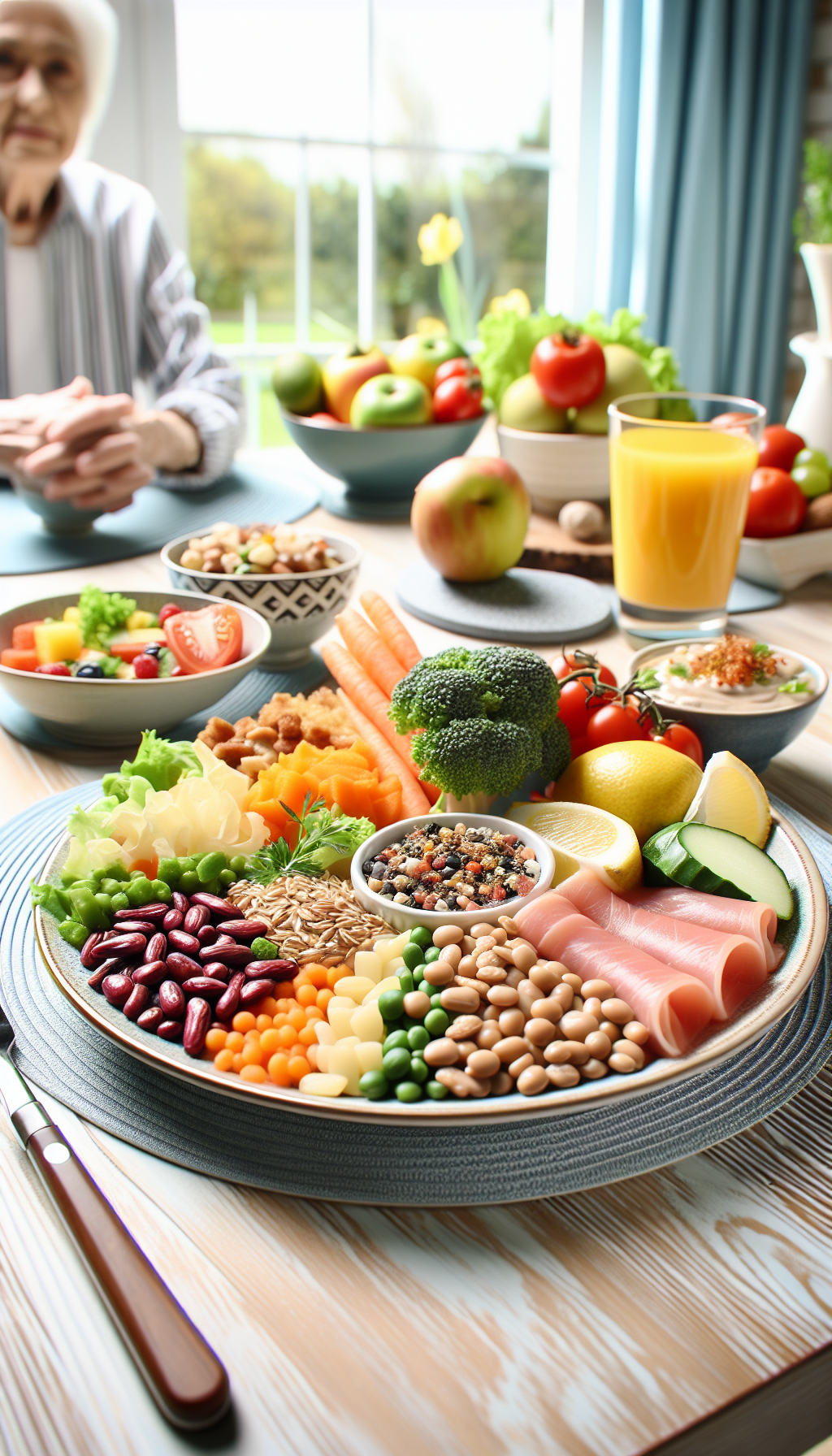As we age, maintaining bone health becomes increasingly important to ensure a high quality of life and to prevent debilitating conditions such as osteoporosis. Seniors, in particular, need to pay close attention to their diet to preserve bone density and strength. This comprehensive guide will delve into the optimal nutritional practices for seniors, focusing on essential nutrients, the role of diet in bone health, and practical dietary strategies to fortify bones.
The Foundation of Bone Health: Calcium and Vitamin D
Calcium is the cornerstone of bone health. It’s a key building block of our skeletal system, but our body doesn’t produce it naturally. Therefore, seniors must obtain adequate amounts of calcium through their diet or supplements. Dairy products like milk, cheese, and yogurt are rich in calcium, but non-dairy sources such as leafy green vegetables, almonds, and fortified foods also contribute to the daily requirements.
Equally important is Vitamin D, which aids in the absorption of calcium. Without enough Vitamin D, our bodies cannot absorb the calcium we consume, regardless of the quantity. Fatty fish like salmon, egg yolks, and fortified foods are excellent sources, but sunlight is also a significant contributor to Vitamin D synthesis in the body.
For a more detailed exploration of bone health, consider visiting Avix Health’s Bone Health section.
Magnesium, Potassium, and Bone Density
While calcium and Vitamin D are pivotal, other minerals like magnesium and potassium also play vital roles in bone density maintenance. Magnesium is involved in bone formation and influences the activities of osteoblasts and osteoclasts – the cells responsible for building and breaking down bone tissue. Nuts, seeds, whole grains, and leafy green vegetables are rich in magnesium.
Potassium helps neutralize bone-depleting metabolic acids. Fruits like bananas and oranges, as well as vegetables, are good sources of potassium.
Protein: The Structural Support
Protein is often associated with muscle mass, but it’s also important for strong bones. It makes up about 50% of bone volume and about one-third of bone mass. However, the key is to balance protein intake with other nutrients, as excessive protein can lead to calcium loss. Incorporating lean meats, dairy, nuts, and legumes into the diet can help seniors get their protein needs without compromising bone health.
Read more on this in the article on How Dietary Protein Impacts Bone Health.
The Role of Exercise in Bone Nutrition
Nutrition and exercise go hand in hand when it comes to bone health. Weight-bearing and muscle-strengthening exercises stimulate bone tissue growth and should be an integral part of a senior’s routine. Regular physical activity, in conjunction with a balanced diet, optimizes bone density and overall health.
For insights into specific exercises, take a look at The Benefits of Weight Lifting for Bone Density.
Nutritional Challenges and Solutions for Seniors
Seniors may face challenges like reduced appetite, changes in taste, and difficulties in meal preparation. To combat these, it’s crucial to plan nutrient-dense meals that are easy to prepare and appealing. Smoothies, soups, and stews can be excellent options that are both nutritious and easy to consume.
The Impact of Lifestyle Choices
Lifestyle choices can greatly affect bone health. Smoking and excessive alcohol consumption can interfere with the body’s ability to absorb calcium, leading to weakened bones. Reducing or eliminating these habits is important for maintaining bone density.
The Importance of Regular Health Screenings
Regular bone density screenings are vital for seniors to monitor their bone health status. These screenings can help detect osteoporosis early, allowing for timely intervention and treatment.
For more on screenings, read about The Importance of Regular Bone Density Screenings.
External Resources for Further Reading
For those seeking more in-depth information on the role of specific nutrients in bone health, consider these resources:
- The National Osteoporosis Foundation provides extensive guidance on the nutritional needs for bone health, especially tailored for those with osteoporosis.
- Academy of Nutrition and Dietetics offers a comprehensive resource for nutrition in older adults, covering various aspects of health beyond bone density.
- International Osteoporosis Foundation offers a global perspective on the importance of nutrition in maintaining bone health, with a wealth of educational materials and research findings.
- Harvard Health Publishing gives an overview of the importance of calcium in the diet and practical tips for incorporating more calcium-rich foods.
- The Linus Pauling Institute provides a detailed analysis of micronutrients and their impact on bone health, with a strong scientific foundation.
Incorporating Nutritional Guidelines into Daily Life
Integrating these nutritional guidelines into daily life requires a balanced approach to diet and lifestyle. Seniors should aim for a diverse diet that includes a range of nutrients to support bone health. It’s not just about single nutrients; it’s the synergy of all nutrients working together that supports healthy bones.
Conclusion
Bone health is a critical aspect of overall wellness, especially for seniors. By focusing on a nutrient-rich diet, incorporating regular exercise, and making healthy lifestyle choices, seniors can maintain strong bones and reduce the risk of osteoporosis and fractures. Regular health screenings are also key in managing bone health as we age. With the right knowledge and resources, seniors can take proactive steps to protect and enhance their bone health for years to come.



